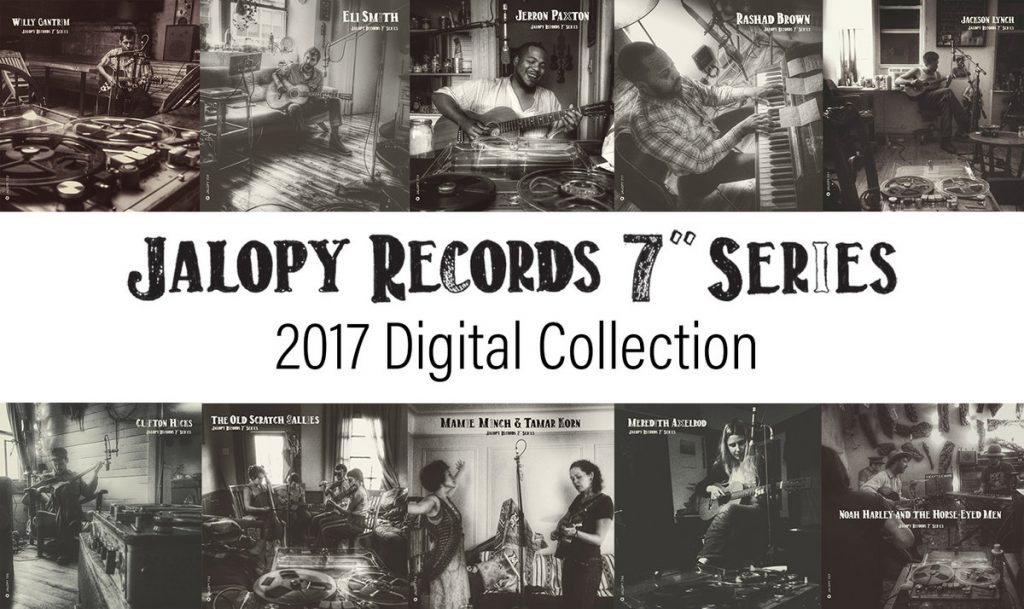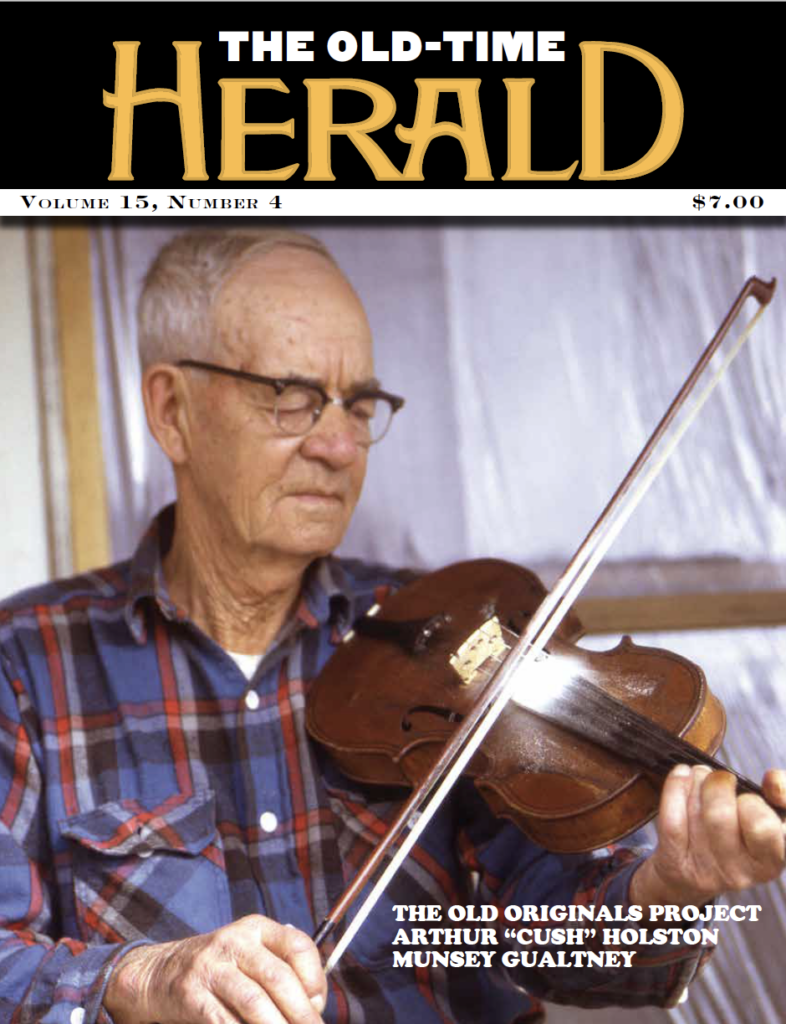Jalopy, the music-school-cum-performance-space-cum-record-label continues its penchant for contemporary releases of what, at least on the surface, sound like recordings from decades past, with this series of subscription-only 7-inch EPs. And in doing so, they dance past conversations about appropriation and authenticity. Instead, they manage to offer up performances by a number of younger artists steeped in Americana whose music sounds authentic, unforced, old, and piped-in from the present’s less hyper-aware doppelganger. The best recordings here demonstrate an unhurried, steadfast certainty that manages to seem effortless.
Mamie Minch and Tamar Korn’s four-song chapter is as good a place as any to witness this. Their voices, skating back to the days of 1930s guitar-based “brother acts” such as the Delmores or the Blue Sky Boys, conjure unspoiled dreams on “Blues Stay Away” and the original “No More Is Love,” among other songs. Their approach blurs lines between what they cover and what they write, showing how little any of those distinctions matter. Walker Shepard can’t help but remind listeners of Blind Willie McTell or Jesse Fuller, due to his reliance on the 12-string guitar, which he plays with as much eloquence as drive. Yes, this is another white guy drawing off black music from the increasingly distant past. Yet it’s never forced, so he, like a similar artist featured in this set, Jackson Lynch, manages to come off as fully invested rather than studied.
Papa Vega’s Dream Shadows Orchestra bring us closer to the Texas/Mexican border, with tracks in the mode of Western swing, with doses of German-derived waltzes, fiddle-and-accordion-driven blues, and a sound that hints at Eastern Europe. There are nods to Adolph Hofner, Bob Wills, and a few nods to Italy and Greece churning out of this record.
It’s fortunate that recordings so reliant on African American folk forms would include a few artists of color. Rashad Brown offers one of the most enticing tracks in the series with “Trick of the Mind,” sounding as slow as Michael Hurley and as mournful as Claire Cronin. Just as cool is his solo electric piano arrangement of “Old Blue,” an ode to a deceased dog immortalized in August Wilson’s Fences. Jerron Paxton delivers, on guitar, harmonica, and piano, pop blues with hints of Naptown’s Leroy Carr and the North Carolina piedmont’s Willie Trice.
Where these records truly succeed is in their artists’ attention to space. Meredith Axelrod’s take on “Death is Only a Dream” has elements of darkness brought on by occasional quirks in her finger picking and a voice with a slight warble. Pat Conte, the most well-known artist here, takes on the impossible task of Bert Hare’s “I’m Dying Mother.” It’s a recording that can’t be bested, so he doesn’t try to do so. Instead, he replaces Hare’s pained despondence, soaked in heartbreak, and comes at the words with a hesitance that still manages to disturb.
The entire series, whether focusing on solo electric guitar balladry, sparse, indie-rock takes on tracks such as “The Butcher’s Boy,” clawhammer banjo-driven tunes, or the occasional ranchera, was all purposely recorded to sound old. And while some might find this sort of anti-production to reek of a certain fetishization of the antiquated, it’s a huge part of what makes these records so good. Arguably, not everyone here imbues their performances with experimentation, but this is whose hands the music is now in. And by laying down tracks for this series, everyone involved comments on it, all the while pushing the conversations around American folk music forward in some way.


Leave a Reply